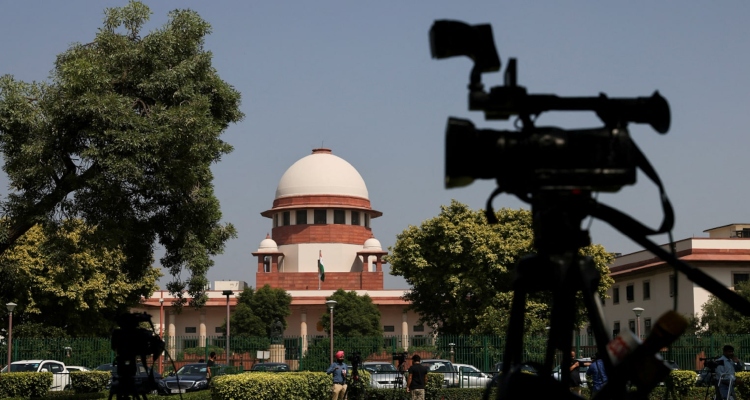
In a landmark 7:2 ruling on Tuesday, the Supreme Court declared that states do not have the constitutional authority to take over all privately-owned resources for distribution to serve the “common good.”
This significant decision came from a 9-judge bench led by Chief Justice DY Chandrachud, who emphasized that while states can claim private properties under specific circumstances, they can’t broadly seize them for redistribution.
The majority verdict overruled a previous interpretation by Justice Krishna Iyer, which suggested that all privately owned resources could be acquired by the state for public benefit under Article 39(b) of the Constitution.
Chief Justice Chandrachud wrote the majority opinion, addressing whether private properties qualify as “material resources of the community” under Article 39(b) and can thus be appropriated by the state.
The ruling overturns a series of earlier judgments that had adopted a more socialist view, permitting states to seize private properties for the common good. In contrast, Justice BV Nagarathna partially dissented from the majority ruling, while Justice Sudhanshu Dhulia dissented completely.
The Supreme Court’s decision follows a history of legal precedent, notably the 1980 Minerva Mills case, in which the Court deemed two provisions of the 42nd Amendment unconstitutional.
These provisions had attempted to shield constitutional amendments from judicial review and prioritized the Directive Principles of State Policy over individual fundamental rights.
Article 31C of the Constitution protects laws made under Articles 39(b) and (c), which empower the state to acquire material resources of the community, including private properties, for public distribution aimed at benefiting society as a whole.
The Court’s ruling came after hearing 16 petitions, with the leading case initiated by the Mumbai-based Property Owners’ Association (POA) in 1992. The POA contested Chapter VIII-A of the Maharashtra Housing and Area Development Authority (MHADA) Act, which was introduced in 1986.
This chapter allows state authorities to acquire cessed buildings and the land on which they stand if at least 70% of the occupants request restoration.
The MHADA Act aligns with Article 39(b), which mandates the state to develop policies ensuring that the ownership and control of community resources are distributed to best serve the common good.
The court’s decision thus marks a pivotal moment in balancing state authority and private property rights, shaping the future of resource distribution in India.




